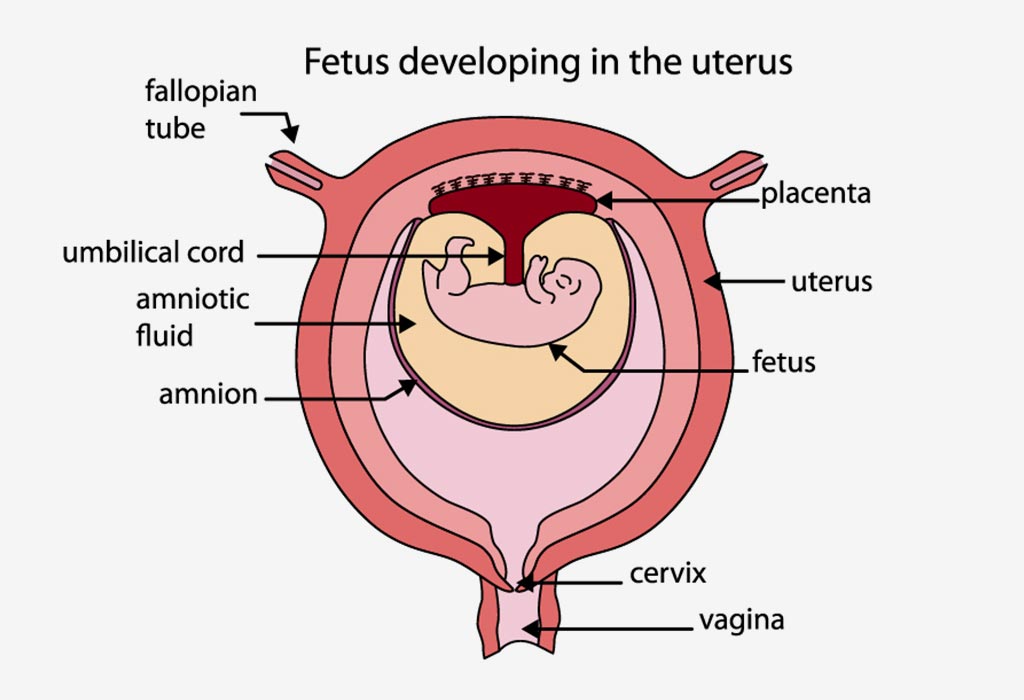In this Article
Your baby rests inside a fluid-filled sac in the uterus. This is the amniotic sac and the fluid in it is known as amniotic fluid. The fluid is important for the safety and health of the foetus growing inside you. At times, however, the quantity of amniotic fluid may not be as expected which could lead to health issues to the little life growing inside you. In this article, we shall talk about the functions of amniotic fluid, the possible causes of changes in its volume and tips you could use to increase it. Read on to know more.
What Does the Amniotic Fluid Do?
The amniotic fluid helps to:
- Lessen the impact when your baby bumps against the uterine walls
- Develop the digestive system and lungs of your baby
- Protect your baby from any infections
If your body has too much or too less of amniotic fluid, it can cause complications during pregnancy ranging from a cracked placenta to preterm labour. Typically, the amniotic fluid index should be 8 – 18 in a normal pregnancy.
What Are the Causes of Low Amniotic Fluid?
When your amniotic fluid index is less than 5 six, then it’s a low level of amniotic fluid or oligohydramnios. A deficiency of amniotic fluid can affect your child’s hands, feet, lungs, limbs and, rarely, also his face. Low amniotic fluid can happen if:
- Your water breaks.
- You have chronic high blood pressure or diabetes.
- Your placenta moves away from the inner wall of the uterus before delivery, depriving your baby of nutrients and oxygen.
- You take medications like angiotensin-converting enzyme (ACE) inhibitors.
- Your baby has problems with the kidneys or urinary tract.
- Fetal growth is poor.
Tips To Increase Amniotic Fluid
Here are some tips to increase the amniotic fluid levels during pregnancy:
- Drink lots of water throughout the day. It’s one of the easiest ways to increase the amniotic fluid. If you increase the level of water your body has, the level of the amniotic fluid also increases.
- Foods that have high water content should be on your plate. Some foods that increase amniotic fluid during pregnancy are:
- Vegetables like cucumber, lettuce, spinach, radish, broccoli, and cauliflower
- Fruits like strawberries, watermelon, tomatoes, cantaloupe/muskmelon, grapefruit
3. Avoid alcohol during pregnancy since it isn’t good for your baby’s health. Alcohol also leads to dehydration and lowers the level of amniotic fluid in your body.
4. Avoid herbal supplements that function as diuretics (medicines that make you urinate more frequently). Excessive urination makes you dehydrated. So, it’s essential to always keep yourself hydrated to maintain and increase the level of amniotic fluid.
5. Perform light exercises regularly. You should work out every day; even walking helps. Working out regularly during pregnancy helps to increase the blood flow to the placenta and the uterus, thus increasing the level of amniotic fluid in your body.
Note: You should workout only if your gynaecologist hasn’t prescribed complete bed rest.

What Are the Causes of High Amniotic Fluid?
When your amniotic fluid index is in the range of 20 – 24, then it’s termed as a high level of amniotic fluid or polyhydramnios. High levels of amniotic fluid can cause placental abruptions, premature labour, postpartum haemorrhage and caesarean delivery. The causes of polyhydramnios are:
- Maternal diabetes
- Birth defect in the baby’s gastrointestinal tract or central nervous system
- Identical twin pregnancy complication in which one baby receives too much blood and the other too little.
- Deficiency of red blood cells in the baby
- Infections to the mother during pregnancy
- Blood incompatibilities between the mother and baby
What Complications Can High Amniotic Fluid Lead To?
Polyhydramnios can lead to the following pregnancy complications:
- Placental abruption
- C-section delivery
- Premature childbirth
- Premature rupture of membranes
- Umbilical cord prolapse
- Stillbirth
Tips To Decrease Amniotic Fluid
Here are some tips to reduce amniotic fluid during pregnancy:
- Sometimes, the amniotic fluid can increase due to a disease. Treatment of the disease will help to lower the level of amniotic fluid.
- Amniocentesis is a process that is used to drain out the excess amniotic fluid from your body. This should be the last resort as it can cause preterm labour and delivery.
- The doctor may put you on indomethacin. It helps in reducing the level of amniotic fluid and is generally prescribed 31 weeks before delivery.
The right level of amniotic fluid is essential for the baby’s well-being. Get your amniotic fluid level checked regularly during pregnancy and ensure it’s always in the range of 8-20. This will ensure that your baby is safely growing inside your womb.









